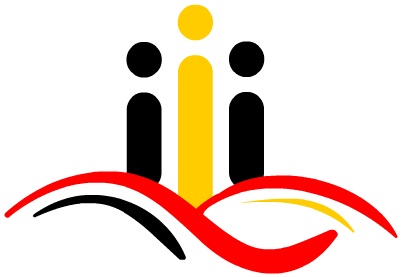Barossa German Language Association Inc.
Invitation
Re-introduction of Bilingual Schooling in the Barossa Region
Public Meeting, Monday 9th August at 6pm
Langmeil Lutheran Church Centre, Maria Street, Tanunda.
The Barossa German Language Association Inc. and its Community invites you to contribute to a Public Meeting, on Monday 9th August at 6.00 pm in the Langmeil Lutheran Church Centre, Maria Street, Tanunda. The purpose of the meeting is to plan the re-introduction of German bilingual teaching in the Barossa Valley and regions.
German is a community language in South Australia and an international language, which is significant for Australian students’ innovation in the arts, science and technology. The Barossa German Language Association Inc. (BGLA) sponsors teaching of German in the Barossa. It has established German language programs for pre-schoolers, school age children and adults. The Association has a bilingual newsletter, holds community events, and organizes regular conversations over Kaffee und Kuchen with invited speakers.
Bilingual language programs are effective for students’ development of proficiency in a language and for the advancement of children’s cognitive development. The programs are efficient in combining language with subject specific study. In bilingual schooling students study subjects such as history, geography, science, arts and mathematics and develop literacy and numeracy in two languages.
The re-introduction of German bilingual programs in the Barossa would redress the South Australian Government Education Amendment Act of 1916, which compulsorily closed 47 listed bilingual German/English community schools.
The South Australian Government Gazette, June 28th, 1917 Closing Lutheran Private Schools
“By virtue of the provisions of the Education Act Amendment Act, 1916, I the said Minister, do hereby specify the thirtieth day of June 1917, as the date on which all the schools referred to in the Schedule to the said Act shall be closed. Crawford Vaughan, Minister of Education
Schedule of German Private Schools to be Closed: 47 schools listed.
The Public Meeting in Langmeil Church Hall, Tanunda on Monday 9th August at 6.00 pm is designed to support the re-introduction of bilingual German teaching in the Barossa region and beyond. At the meeting a panel of community, political and educational speakers will address the strategy for re-introduction of German bilingual teaching in South Australia.
Further information on the Barossa German Language Association Inc. see the BGLA website WWW.BAROSSAGERMAN.COM.AU.
Further information on bilingual teaching and on the public meeting contact Dr Peter Mickan, Visiting Research Fellow, University of Adelaide. Peter.mickan@adelaide.edu.au
Barossa German Language Association
Invitation to Kaffee und Kuchen
Bilingualism and Bilingual Schooling: The evidence for bilingual education
Bilingual education is the topic for the next Kaffee und Kuchen event. The presentations are a lead-up to a Forum on August 9th at which a panel of speakers will address the topic of the re-introduction of bilingual programs in the Barossa region.
Kaffee und Kuchen, 1.00 pm -3.00 pm, Monday August 30th, 2021
Langmeil Lutheran Church Hall, Maria Street, Tanunda.
Speakers
Dr Margareta Velichova Rebelos
Topic: Connecting play and speech with learning to read and write in two languages
Research has demonstrated that becoming bilingual during childhood can have lifelong benefits. However, embarking on the bilingual journey does not always translate into successful long term bilingualism. When school aged children start learning how to read and write, and gradually move onto the majority language, sometimes even refusing to speak the family language, families often find themselves abandoning their bilingualism plans.
Can families build on the emotional language connection they have developed in the early years, and help children become biliterate?
What bilingual strategies can families use to maintain the connection, and children’s interest in the language beyond the early years?
Dr Peter Mickan, Visiting Research Fellow, University of Adelaide
Topic: Benefits of bilingual education
International research documents the benefits of bilingual teaching for language learning, for literacy and numeracy development and for efficient use of school resources. Internationally school languages subjects are being replaced with teaching subjects in an additional language. Peter will report studies on the value and practicality of bilingual programs in the context of the remarkable success of the German/English curriculum taught in Barossa schools until 1917.
For further information contact
Dr Peter Mickan
